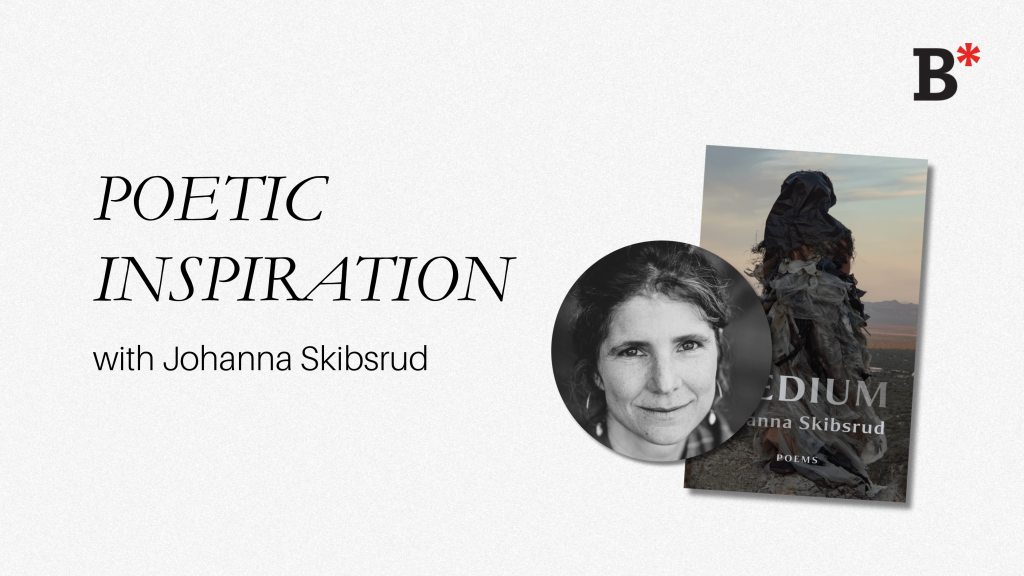Poetic Inspiration with Johanna Skibsrud

Next up in our “Poetic Inspiration” series is Johanna Skibsrud, author of Medium!
B*: Please share up to three poetry books or poets that are important to you, and helped influence the writing of Medium. Please also share how they influenced your book.
JS: It occurs to me—in thinking about what poets and works of poetry influenced the writing of Medium—that as much as a work of poetry the book is a kind of love song to the genre of poetry and all its possibilities. In the book’s preface, I cite cultural historian Johan Huizinga’s observation that, of all modes of linguistic expression, the lyric “is the farthest removed from logic” and can therefore be considered a close cousin to “music and dance.” Taking that as a starting place, I can see—and want to acknowledge—every poem I’ve ever read that sparked a sense in me that what was happening in the poem wasn’t really (or only) happening on the page, as an influence on Medium. But it was poets whose work specifically extends toward—and grapples with—other forms and mediums that were particularly influential. Jennifer Scappettone, for example—whose work encompasses archival research, environmental study and observation, performance, installation, and dance. Also Cecilia Vicuña, because of the way her poetry has likewise always been indissociable from her work as a visual and textile artist, and an activist. Lisa Robertson’s Anemones: A Simone Weil Project (“If I Can’t Dance” 2021) also influenced the writing of this book very specifically through its contemporary reimagining of the vida—the short biographical texts that once introduced and provided commentary on the manuscripts of the troubadours. As I explain in the book’s preface (and I hope this also helps to make sense of my interest in the multifaceted nature, and implications, of Scappettone and Vicuña’s work): “Medium employs this obsolete form as a way of embracing the tension between voice and text and emphasizing poetry as a mode of attention rather than of communication—a generative enactment of intimacy and exchange.”
B*: Please share a writing prompt for aspiring poets that you have used to start composing a new poem.

